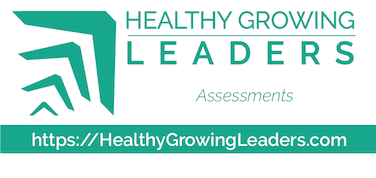
While there are many factors which influence relationships and leadership, few are more significant than Emotional Intelligence or Emotional Quotient (EQ). Your EQ will dramatically affect how you interact with others and how others perceive you. The great news for all of us is that EQ can (and should) improve as we mature if we are aware of our blind spots and intentionally make an effort to shore up weaknesses.
Research shows our view of EQ is established in our culture of origin; it is neither a point of shame or pride. If you grew up in a home where your parents appropriately expressed their emotions and they encouraged you to do the same, it’s likely you started developing strong self-awareness and self-regulating skill sets by your culture of origin. If you were also taught how to understand what your family members or friends were feeling, you probably are keenly aware of how to manage and regulate the emotions of others. For many of us, this was not the case.
Our EQ Inventory (EQ-W) is designed to measure these four primary constructs plus two additional scales to improve how we handle relationship, leadership, and stressful situation:
Constructs:
- Self Awareness,
- Self Regulating,
- Others Awareness, and
- Others Regulating.
Additional Scales:
- EQ in Problem Solving
- EQ Under Stress
Remember, each area is a skill set that can be learned and improved through coaching and intentional effort.
Self Awareness
Self Awareness is being aware of what emotions you are experiencing and why you are experiencing these emotions. This skill is demonstrated in real time. In other words, when you are in the midst of a discussion or even a disagreement with someone else, ask yourself these questions:
- Are you aware of what emotions you are experiencing?
- Are you aware of why you are experiencing these emotions?
More than just knowing you are angry, our goal is to understand what has caused the anger, such as frustration, hurt, pain, confusion, etc.
Your responses to the items on the Self Awareness scale indicate the score for the ability to be aware of your own emotions is equal to or better than 72.6% of those who completed this instrument.
Self Regulating
Self Regulating is appropriately expressing your emotions in the context of relationships around you. Don’t confuse this with learning to suppress your emotions; rather, think of Self Regulating as the ability to express your emotions appropriately. Healthy human beings experience a full range of emotions and these are important for family, friends, and co-workers to understand. Self Regulating is learning to tell others what you are feeling in the moment.
Your responses to the items on the Self Regulation scale indicate the score for the ability to appropriately express your own emotions is equal to or better than 78.8% of those who completed this instrument.
Others Awareness
Others Awareness is being aware of what emotions others are experiencing around you and why they are experiencing these emotions. As with understanding your own emotions, this skill is knowing in real time what another is experiencing. This skill involves reading cues to their emotional state through their eyes, facial expressions, body posture, the tone of voice or many other ways. It is critical you learn to pay attention to these cues for you to enhance your awareness of others’ emotions.
Your responses to the items on the Others Awareness scale indicate the score for the ability to be aware of others emotions is equal to or better than 15.9% of those who completed this instrument.
Others Regulating
Others Regulating is helping those around you express their emotions appropriately in the context of your relationship with them. This skill centers on helping others know what emotions they are experiencing and then asking questions or giving permission to them to freely and appropriately express their emotions in the context of your relationship.
Your responses to the items on the Others Regulation scale indicate the score for the ability to enable others to appropriately express their emotions in the context of your relationship is equal to or better than 24.2% of those who completed this instrument.
Additional Scales
The EQ-W includes two additional scales which are particularly useful for those in leadership roles: 1) EQ in Problem Solving and 2) EQ under stress. Frequently we find it difficult to appreciate that conflicting emotions exacerbate most problems we experience in life. The solution, therefore, must account for these emotions, not just logic or doing the “right” thing.
EQ in Problem Solving
The EQ in Problem Solving identifies how proficient you are in using emotions to solve problems. This skill requires first being aware of what emotions are involved in the problem and what is the source of those emotions. It also includes helping others (and yourself) express those emotions within the discussion.
Your responses to the items on the EQ in Problem Solving scale indicate the score for the ability to use emotions in resolving problems is equal to or better than 38.2% of those who completed this instrument.
EQ Under Stress
It is more difficult to maintain high EQ under high stress than at any other time, so EQ Under Stress identifies how capable you are to keep high EQ under high-stress moments. This skill requires highly developed Self and Others awareness to understand how the stress is impacting yourself and others. It also involves being able to articulate the appropriate emotions under pressure which may be different from articulating them when not under stress.
Your responses to the items on the EQ in Under Stress scale indicate the score for the ability to maintain EQ under significant stress is equal to or better than 50% of those who completed this instrument.
Before You Go
Your scores on each of these scales are simply a reflection on the skill sets you have developed in each of these areas. You should not take pride or feel shame for any of the scores. Instead, we should each commit to working on our lowest scores or that which is most troublesome. Take a look at the list below for a number or resources which are helpful as a place to begin.
However, as we said in the introduction to this instrument, EQ is developed through intentional effort, coaching and practice. The remarkable aspect of EQ is that research has shown that individuals well into their 90s have the capacity to increase their EQ in any of the six scales.
We have personally seen individuals raise their EQ significantly in a few short years. You are not destined to retain your current EQ, but it is simply a launching point for where you can go from this point forward.

Further Reading
Developing your EQ is like riding a bike. While it may be helpful to read a book on bike riding, it is even more useful to watch videos. But, the only way to learn to ride a bike is to DO IT! You must develop the kinesthetic sense to feel the balance by your senses, coordinated by your nerves and implemented by many muscles. The same is true with EQ — it is intentionally developed, seen in others, coached in real time, and practiced in relationships
Here are a few books which we believe are great resources for developing your EQ:
- A Failure of Nerve: Leadership in the Age of the Quick Fix, Edwin Friedman, Link.
- Coaching for Emotional Intelligence: The Secret to Developing the Star Potential in Your Employees, Bob Wall, Link.
- Crucial Conversations: Tools for Talking When Stakes Are High, Kerry Patterson, Joseph Grenny, Ron McMillan, Al Switzler, Stephen R. Covey (Foreword), Link
- Emotional Intelligence for Dummies, Steven J. Stein, Link.
- Leadership and Self-Deception: Getting Out of the Box, The Arbinger Group, Link.
- Primal Leadership: Realizing the Power of Emotional Intelligence, Daniel Goleman, Link.
- The Anatomy of Peace: Resolving the Heart of Conflict, The Arbinger Institute, Link.
- Permission to Feel: Unlocking the Power of Emotions to Help Our Kids, Ourselves, and Our Society Thrive, Marc Brackett, Link.


